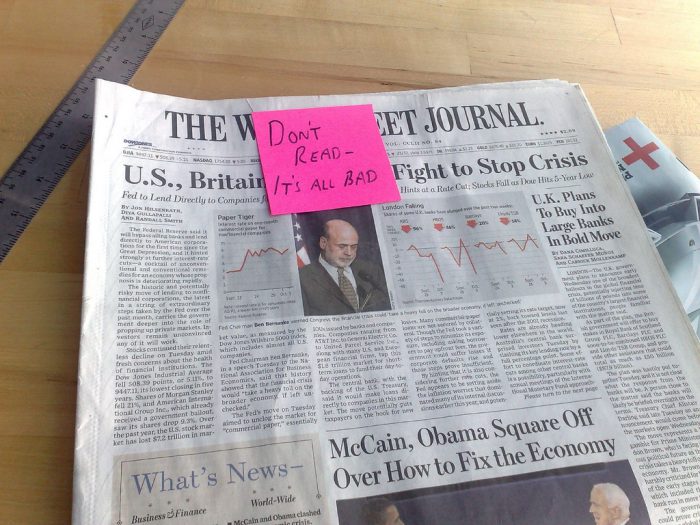
Thursday was a rough day for digital media. Within hours, a series of reports, some unofficial and others confirmed, underscored a bitter reality that’s become increasingly harder to avoid: Not even the biggest digital media startups are immune from the seismic shifts in digital advertising affecting the whole industry. The upshot: Ad-supported digital media is hard, and getting harder. Meanwhile, the duopoly — Google and Facebook — continue to see their own ad businesses thrive.
Here’s a rundown:
— More layoffs at Oath. Early in the day, Digiday’s Lucia Moses reported that Verizon’s Oath, which includes The Huffington Post, AOL, Yahoo, and some ad tech products, was laying off 560 staffers, around 4 percent of the company’s overall headcount. Those cuts were in addition to the 2,100 Verizon laid off when it acquired Yahoo in June.
— Mashable sells low. Probably the most brutal news of the day came from The Wall Street Journal, which reported that Mashable, a one-time digital media darling, had agreed to sell itself to Ziff Davis to $50 million. For Mashable, that was a significant haircut from its 2016 valuation of $250 million. The low price suggests that, for potential buyers, digital media is an increasingly uncertain bet.
Worth pointing out: Mashable is still a great media startup story, started as a blog by a 19 year old in a small corner of Scotland, that became a cultural thing for a while. That is still a big achievement beyond monetary returns.
— Rafat Ali (@rafat) November 16, 2017
— The Journal also reported that both BuzzFeed and Vice will miss their revenue projections for the year. BuzzFeed will miss its goals by 15 to 20 percent, while Vice’s earnings will come in around lower than its target of $800 million.
— And don’t forget: It was just last week that we covered the bad news coming out of the local news space: DNAinfo was shut down entirely, while Spirited Media laid off staff.Vice & BuzzFeed are massively overvalued. Expect belt-tightening in the months ahead. https://t.co/HBFThREDqg
— Jeff Giesea (@jeffgiesea) November 16, 2017
There are many takes on what all these stories mean, both for the companies themselves and for digital media overall. One prevailing narrative is that these companies, all of which rely on advertising as the core pillar of their businesses, had simply placed a bad bet on the plans of the big tech companies, particularly Facebook, whose algorithm changes have forced significant shifts in strategy for the companies that rely on it for traffic. These changes come at the same time as Google and Facebook continue to snatch up all the growth in digital ad spending. Frenemies indeed.
Advertising conditions out there are rough for publishers unless you are G +FB …and we are still in positive economic growth. Systemic not cyclical decline https://t.co/AQ4HWFlp8O
— emily bell (@emilybell) November 16, 2017
We are not even in a recession yet. These structural declines are going to look like a freefall when that happens.
— Vijay Ravindran (@vijayravindran) November 17, 2017
always thought the problem with the BuzzFeed model is that serious news (which it has done a lot of) is not core and will be 1st thing overboard
— Ryan Chittum (@ryanchittum) November 16, 2017
Buzzfeed employees: unionize before the cutbacks begin. We’ve seen this movie before. Build yourself a safety net now.
DM me to get in touch with a union organizer. https://t.co/RcVyP5slPj— Hamilton Nolan (@hamiltonnolan) November 16, 2017
It’s worth point out one media bright spot this week: Axios said on Friday it’s raised $20 million to fund further expansion of its newsroom. The company expects its overall headcount to increase to 150 staffers, up from its current staff of 89. Media companies taking on more venture capital isn’t always a good thing, but we’ll take any good news where we can get it.
But meanwhile, elsewhere in media… https://t.co/g2mJMKqaHr
— Jeff Jarvis (@jeffjarvis) November 17, 2017